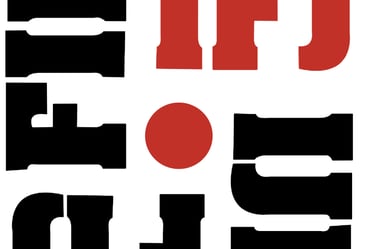UFC Fighter Walt Harris Receives Four-Year Suspension from New Anti-Doping Program


Fighter Hit with 4-Year Suspension from New UFC Anti-Doping Partner
The UFC made a significant announcement late last year, revealing its decision to end its long-standing partnership with the United States Anti-Doping Agency (USADA) and implement a new anti-doping program starting in 2024. While this change generated considerable buzz at the time, it has not garnered much attention in the early part of this year. However, Combat Sports Anti-Doping (CSAD) recently made headlines by announcing a four-year suspension for fighter Walt Harris, resulting from two separate violations that occurred last year.
Walt Harris, a prominent fighter in the heavyweight division, has been a part of the UFC for several years. Known for his explosive power and knockout ability, Harris has gained a loyal fan base and has been considered a top contender in his weight class. However, his reputation has been tarnished with the recent news of his suspension.
The CSAD, the new anti-doping partner of the UFC, has taken a strong stance against performance-enhancing drugs and other banned substances. Their rigorous testing procedures are designed to ensure a level playing field for all fighters and maintain the integrity of the sport. Harris, unfortunately, found himself on the wrong side of these regulations.
The violations that led to Harris' suspension occurred during two separate instances last year. The CSAD's thorough investigation revealed that Harris had tested positive for a banned substance in both cases. While the details of the specific substances were not disclosed, the CSAD emphasized the seriousness of the violations and the need for strict consequences.
As a result of the violations, Harris has been handed a four-year suspension from all UFC competitions. This means that he will be ineligible to fight or participate in any UFC-related activities until the completion of his suspension in 2025. The impact of this suspension is significant, not only for Harris but also for the division he competes in.
With Harris out of the picture for the foreseeable future, the heavyweight division will undoubtedly experience a shift in its rankings and matchups. Other fighters in the division will have the opportunity to rise through the ranks and stake their claim for a shot at the title. This creates an exciting and unpredictable landscape for fans and opens up new possibilities for potential matchups.
While the news of Harris' suspension may be disappointing for his fans, it serves as a reminder that the UFC is committed to maintaining a clean sport and ensuring fair competition. The implementation of the new anti-doping program demonstrates the organization's dedication to this cause. As the UFC moves forward with its partnership with the CSAD, it is expected that more cases of doping violations will be uncovered, leading to further suspensions and potentially reshaping the landscape of the sport.
Walt Harris, a heavyweight contender in the UFC, was recently suspended for a violation of the organization's new anti-doping policy. The news sent shockwaves through the MMA community, raising questions about the effectiveness of the new program and the potential impact it will have on the sport moving forward.
The details surrounding Harris' suspension are still unclear, but it serves as a stark reminder that the UFC is committed to cracking down on performance-enhancing drugs and ensuring a level playing field for all fighters. The organization has made it clear that it will not tolerate any form of cheating or unfair advantage, and the implementation of this new anti-doping program is a testament to that commitment.
With the new program set to be fully operational in 2024, the UFC has taken a proactive approach to combating doping in the sport. The organization has partnered with a renowned anti-doping agency, whose expertise and experience will be invaluable in maintaining the integrity of the sport.
Under the new program, fighters will be subject to rigorous testing throughout the year, both in and out of competition. This includes random drug tests, blood tests, and urine tests, all aimed at detecting any banned substances in an athlete's system. Additionally, the program will also focus on education and awareness, ensuring that fighters are well-informed about the dangers and consequences of doping.
While some may argue that the new program is too strict or invasive, the UFC believes that it is necessary to protect the sport and its athletes. The organization understands that doping not only undermines the integrity of the competition but also poses serious health risks to fighters. By implementing this comprehensive anti-doping program, the UFC is taking a proactive stance in safeguarding the future of mixed martial arts.
As the sport continues to grow and gain mainstream popularity, it is crucial for the UFC to maintain its reputation as a clean and fair organization. The new anti-doping program is a significant step in that direction, signaling to fans, fighters, and the wider combat sports community that the UFC is committed to upholding the highest standards of integrity and ensuring a level playing field for all.
Walt Harris's Suspension and Violations
Combat Sports Anti-Doping (CSAD) announced that Walt Harris, a prominent fighter in the UFC, has accepted a four-year suspension due to two separate violations that occurred in the previous year. The details surrounding the violations have not been explicitly disclosed, but CSAD's decision to suspend Harris for such a lengthy period indicates the seriousness of the infractions.
Walt Harris, known for his impressive performances in the Octagon, will now face a significant setback in his career. The four-year suspension not only prevents him from competing in the UFC during this period but also raises questions about his future in the sport.
This suspension comes as a shock to many fans and fellow fighters who have admired Harris's skills and dedication to the sport. Known for his explosive knockout power and relentless fighting style, Harris has been a force to be reckoned with in the heavyweight division. His victories over notable opponents have solidified his place among the top contenders in the UFC.
However, with this suspension, Harris's reputation has taken a hit. The fact that he has accepted the four-year ban suggests that he acknowledges the violations and their severity. It leaves fans and analysts speculating about the nature of these infractions and how they might have impacted his performance in the past.
While the details remain undisclosed, it is important to note that CSAD takes a strong stance against doping in combat sports. The organization's mission is to ensure fair competition and protect the health and safety of athletes. By imposing a four-year suspension, CSAD is sending a clear message that violations will not be tolerated, regardless of an athlete's status or reputation.
For Harris, this suspension not only means a forced hiatus from the Octagon but also a loss of potential earnings and opportunities. The UFC is a highly competitive environment, and four years away from the sport can be detrimental to a fighter's career. It raises concerns about whether Harris will be able to bounce back and regain his previous form once his suspension is lifted.
Furthermore, this incident also raises questions about the effectiveness of the UFC's drug testing policies and procedures. While CSAD is an independent organization responsible for testing and enforcing anti-doping regulations, the fact that Harris was able to commit two separate violations without detection until now raises concerns about the system's efficacy.
As the news of Harris's suspension spreads, the MMA community is left to reflect on the implications of this incident. It serves as a reminder that even the most respected fighters can fall prey to the temptations of performance-enhancing drugs and that the consequences can be severe.
Ultimately, the full extent of the impact this suspension will have on Walt Harris's career remains to be seen. It will be up to him to use this time away from the Octagon to reflect, learn, and make the necessary changes to ensure a successful return to the sport he loves. Only time will tell if he can overcome this setback and reclaim his position among the elite fighters in the UFC.
One of the key implications of Walt Harris's suspension is the impact it has on his career and reputation. With a four-year suspension, Harris will be unable to compete in any UFC fights during that time period. This not only affects his ability to earn a living as a professional fighter but also hinders his progression and growth within the sport.
Additionally, the suspension puts a stain on Harris's reputation. While the details of his violations are not public knowledge, the fact that he has been suspended for a significant period of time raises eyebrows and leads to speculation among fans and fellow fighters alike. This can damage his credibility and make it difficult for him to regain the trust and respect of the MMA community.
Furthermore, the implications of Harris's suspension extend beyond just the individual fighter. It also has an impact on the UFC as an organization. The decision to suspend a high-profile fighter like Harris sends a clear message that the UFC is willing to take a strong stance against doping and is committed to maintaining the integrity of the sport.
This can have a ripple effect on other fighters, serving as a deterrent for those who may be considering using performance-enhancing substances. It sets a precedent that the UFC is serious about enforcing its anti-doping regulations and that violations will not be taken lightly.
Overall, Walt Harris's suspension has far-reaching implications for both himself and the UFC. It serves as a reminder of the importance of clean competition, raises questions about the effectiveness of the anti-doping program, and sends a message to all fighters about the consequences of violating the rules. As the sport of MMA continues to evolve, it is crucial that organizations like the UFC remain vigilant in their efforts to maintain a level playing field and ensure fair competition.
The Future of the UFC's Anti-Doping Program
With the announcement of Walt Harris's suspension, the spotlight is once again on the UFC's new anti-doping program. As the organization moves forward with its plans to transition away from USADA, it faces the challenge of ensuring the effectiveness and credibility of the new program.
The UFC must address concerns raised by Harris's suspension and demonstrate its commitment to fair competition. Transparency and open communication regarding the details of violations and the subsequent disciplinary actions will be crucial in maintaining the trust of both fighters and fans.
One way the UFC can enhance the transparency of its anti-doping program is by establishing an independent oversight committee. This committee would consist of experts in the field of anti-doping and would be responsible for reviewing all cases of potential violations, ensuring that the process is fair and unbiased. By involving external professionals, the UFC can ensure that the decisions made regarding anti-doping are based on expert knowledge and not influenced by any internal conflicts of interest.
Furthermore, the UFC should consider implementing a more comprehensive testing protocol. While USADA has been instrumental in catching and penalizing fighters who have violated the anti-doping policy, there have been concerns about the effectiveness of the testing methods used. The UFC should invest in state-of-the-art testing equipment and techniques to ensure accurate and reliable results. This would not only help in catching potential violators but also deter fighters from attempting to cheat the system.
In addition to improving the testing protocol, the UFC should also focus on education and prevention. By providing comprehensive support and guidance, the organization can reduce the likelihood of unintentional violations and promote a culture of clean competition. The UFC should develop educational programs and resources that educate fighters about the dangers of performance-enhancing drugs and the potential consequences of using them. These programs should also emphasize the importance of knowing and understanding the banned substances list to avoid any inadvertent violations.
Another aspect that the UFC should consider is the rehabilitation and reintegration of fighters who have served suspensions for anti-doping violations. While it is important to hold fighters accountable for their actions, it is also crucial to offer them a chance to redeem themselves and return to the sport. The UFC should provide support and resources to help these fighters rehabilitate and educate them on the importance of clean competition. By doing so, the organization can show that it is not only focused on punishment but also on the long-term well-being and growth of its athletes.
In conclusion, the future of the UFC's anti-doping program relies on a multi-faceted approach that includes transparency, improved testing protocols, education, and rehabilitation. By addressing the concerns raised by recent suspensions, implementing an independent oversight committee, and investing in advanced testing methods, the UFC can strengthen the credibility of its anti-doping efforts. Additionally, by providing comprehensive support and guidance to fighters, the organization can foster a culture of clean competition and ensure the integrity of the sport.




